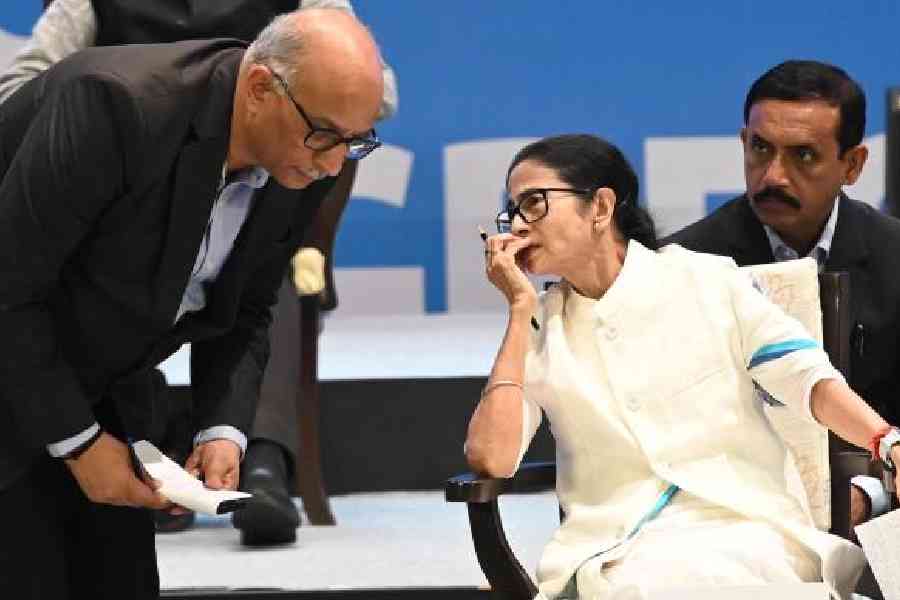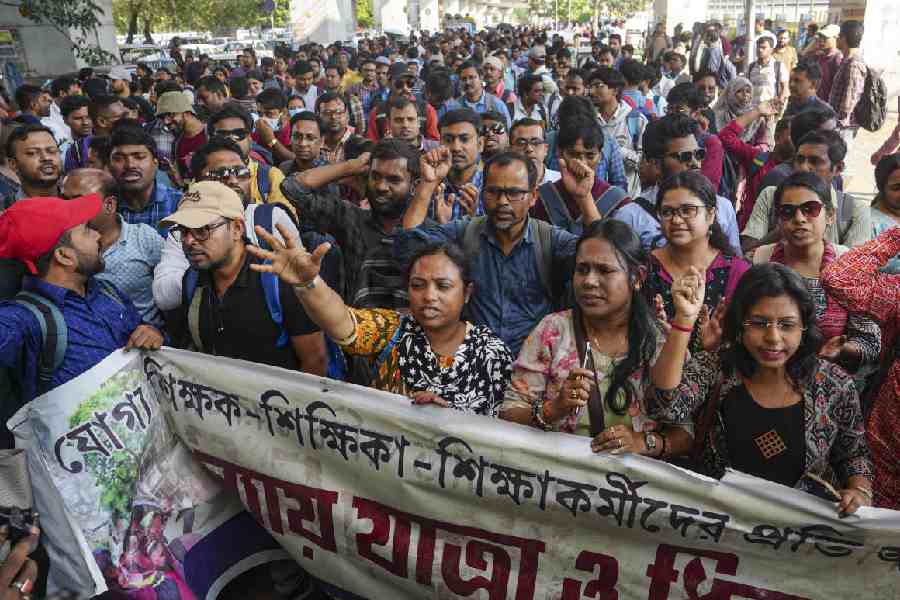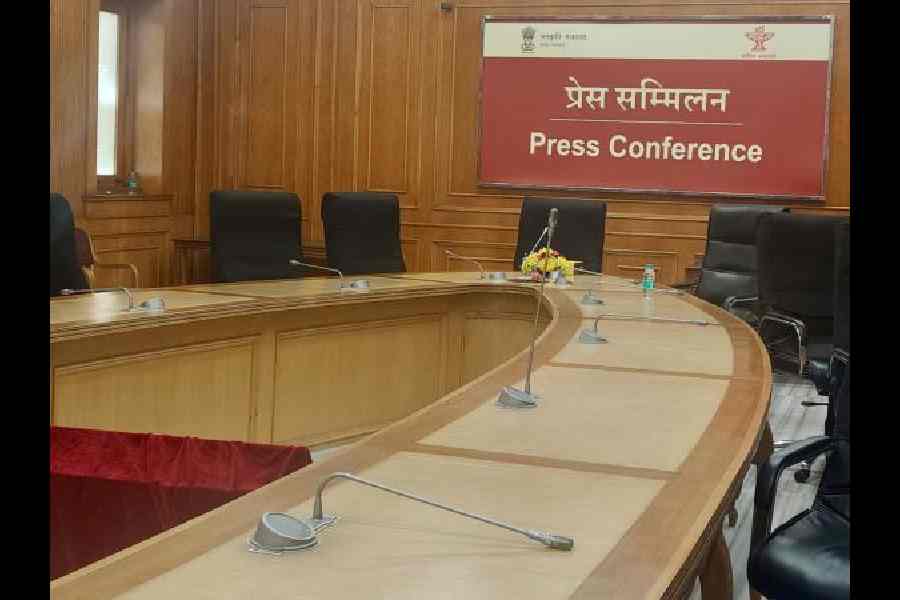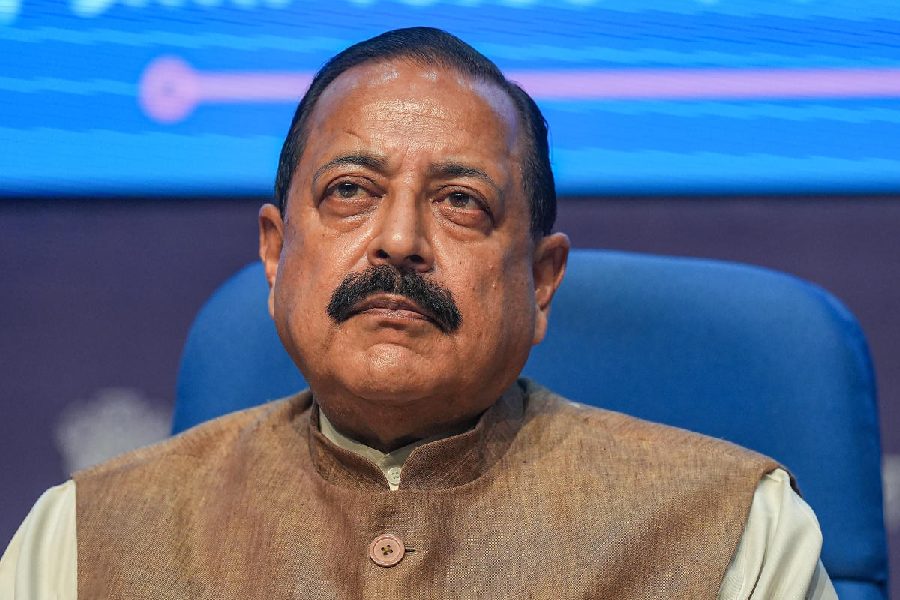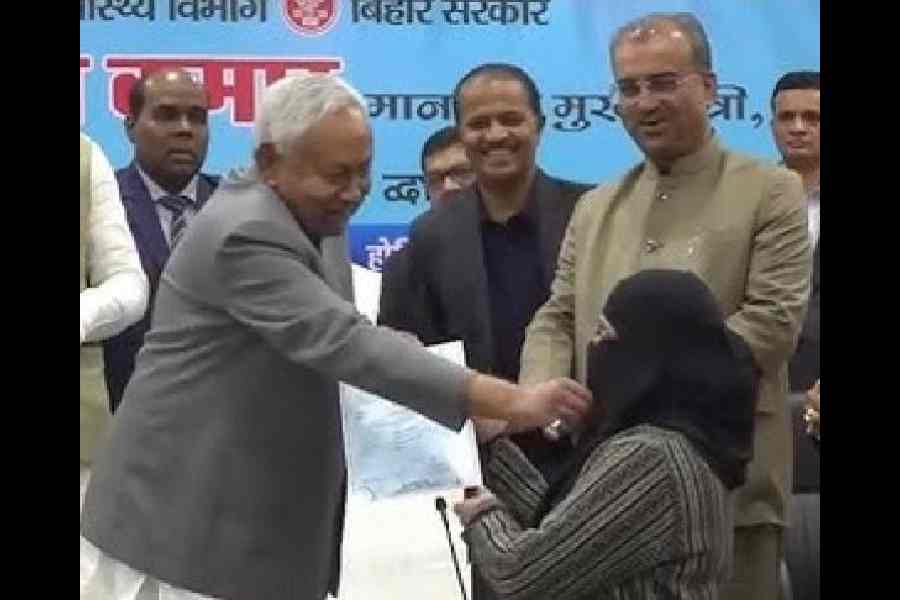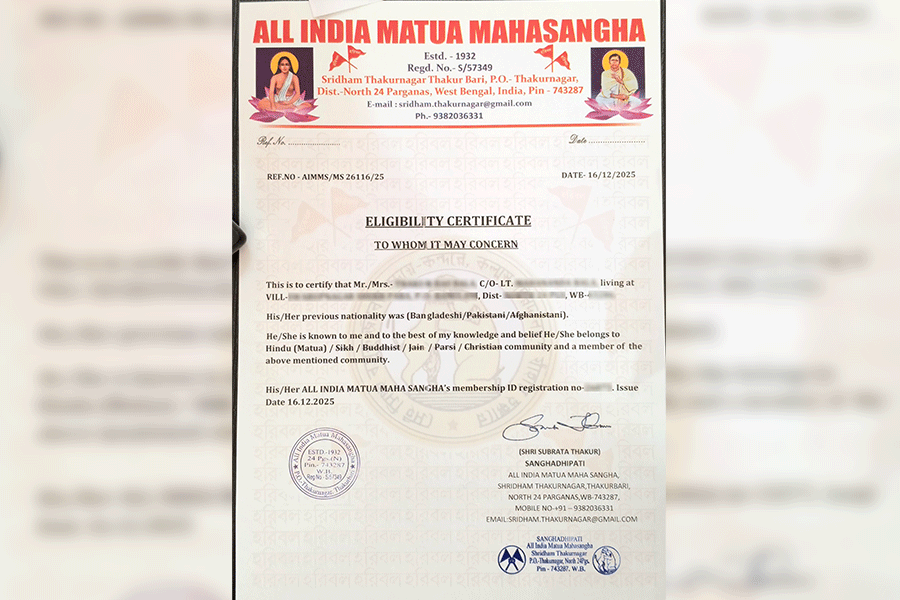 |
| Jugal Kishore Dutta with Taslima Nasreen. Telegraph picture |
With 96 translations so far, Jugal Kishore Dutta is a name to be reckoned with for translating works of Bengali literature into Oriya and vice-versa. He is perhaps the only Oriya writer to get both the state and central Sahitya Akademi Awards in the same year (1997). He had an intimate chat with Bibhuti Barik of The Telegraph regarding the status of the translation works and the future of Oriya literature.
When did it all start? Which came first — writing in Oriya or translating Bengali works?
I started writing in Oriya in 1948. However, during my college days, we formed an editorial group start a magazine called Diganta. My first poetry collection Satabdira Prema came out in 1950. Then Manasi – again a collection of poetry – was published in 1951.
After your second collection came out how did you progress in your literary career?
During my days at Bhadrak we (some friends) started a Sahitya Asara (literary club). Our inspiration was the famous Oriya poet Lakshmikanta Mohapatra. I used to get compliments from him for my poems published in the monthly Dagara.
How did you develop the idea of translating Bengali books into Oriya?
During my school days I used to visit Raghunandan Library to read detective books written in Bengali. Panchkadi Dey’s Nilabasana Sundari and Sasadhar Dutta’s Mohan series were my favourites. But my inspiration came from the famous Bengali-Oriya translator of all time Lakshminarayan Mohanty. I met him in Cuttack and then decided to translate some of the best Bengali works into Oriya. My first translation was Bimal Mitra’s America which was published in the Oriya magazine Jeevana Ranga edited by Randhir Das in 1970. Das told me that there was a demand for such stories and I should translate more. Thereafter there was no looking back and I translated 96 Bengali books into Oriya. Among these works only two were short stories and the rest novels.
Who are the authors you love to translate and why?
I translated almost all works of Bimal Mitra. But my parameter was very simple. As I used to read a lot of Bengali works, I first see which story or novel attracts me as a reader. The other authors I translated include Rabindranath Tagore, Sarat Chandra Chattopadhyay, Samresh Majumdar, Shankar, Sunil Gangopadhyaya and Taslima Nasrin.
How was your interaction with Taslima Nasreen during the Bhubaneswar Pustak Mela?
Taslima was invited here and she went through the translation of Lajja by writer and former chief minister Nandini Satapathy. But she told me in private that as the translation was from a magazine series, she wanted another translation by me. But I said I would rather translate her other works. She also visited the historical places like Konark and Puri and was surprised to see the richness of Oriya culture. She was speechless after visiting the stone works in Konark. Now I have translated all the books written by Taslima.
What is your opinion about the works done by contemporary translators?
Currently, J.C. Jyoadar and Bharati Nandi are doing a great job. While Jyoadarbabu has translated eminent Oriya authors like Gopinath Mohanti and Bamacharan Mitra, Bharati has translated works of Pratibha Ray and Binapani Mohanty.
What is the current state of Oriya literature and how you see its future?
We should not go for sponsored publications as nowadays rich people are asking publishers to print their works, but does anyone read that? It’s a dangerous trend. Even these activities would compel publishers not to give royalty to authors. Literary activities should be barred from power politics. Literary circles should devise their own and long-term survival strategies. We must urge people in Oriya households to read more .


